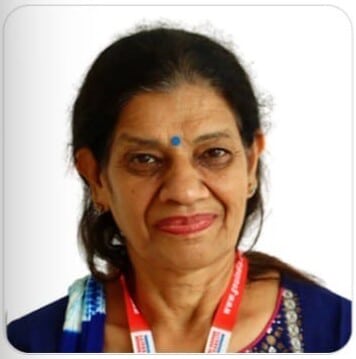Quantum Computing in Protein Design: Foundations to Applications using Open Tools
Redefining Protein Engineering with Deep Quantum Technology.
About This Course
Quantum computing has emerged as a transformative paradigm with the potential to revolutionize molecular biology and protein engineering. Protein folding — a complex, NP-hard problem — stands to benefit significantly from quantum-inspired approaches that promise more efficient and scalable solutions. This workshop is designed to bridge the gap between quantum computing theory and its real-life implications in protein science.
Over two days, participants will explore fundamental quantum computing principles, biological protein structures, and key quantum algorithms like VQE, QAOA, and quantum annealing. Through hands-on sessions using IBM Quantum Experience, D-Wave Leap, and frameworks like PennyLane, learners will simulate protein folding and apply quantum machine learning models to biological datasets — all using free, open-source tools.
Aim
To introduce participants to the interdisciplinary fusion of quantum computing and protein design, equipping them with the foundational concepts and hands-on skills using open-source quantum tools. The workshop enables learners to understand protein folding, quantum algorithms, and their real-world biological applications.
Workshop Objectives
-
Understand quantum computing principles and their application to biological systems
-
Learn the fundamentals of protein structure and folding problems
-
Apply quantum algorithms like VQE and QAOA to biomolecular challenges
-
Gain hands-on experience with IBM Quantum and D-Wave platforms
-
Build simple QML models to analyze protein-based datasets using open-source tools
Workshop Structure
Day 1: Foundations of Quantum Biology and Protein Folding
- Introduction to Quantum Computing
• Qubits, superposition, entanglement
• Classical vs quantum computing - Primer on Protein Structure and Design
• Primary to quaternary structures
• Protein folding problem - Challenges in Protein Folding
• Energy landscapes
• NP-hard nature of folding - Quantum Algorithms in Biology
• VQE and QAOA explained with relevance to molecular systems - Hands-on Demo with IBM Quantum Experience
• Create account
• Visualize gates and run basic circuits
Day 2: Quantum Applications for Protein Design and Learning
- Quantum Annealing & Protein Folding
• Lattice models (e.g., HP)
• QUBO formulation and quantum annealers - Hands-on with D-Wave Leap
• Environment setup
• Run protein folding example via Ocean SDK / Leap IDE - Quantum Machine Learning (QML)
• Frameworks: PennyLane, Qiskit ML
• Applications in protein-ligand interactions - Protein Feature Classification with QML
• Preprocessing data
• Building a QNN in PennyLane - Future of Quantum Protein Design
• Ethics, careers, and emerging research paths
Who Should Enrol?
- Undergraduate or postgraduate degree in Biotechnology, Bioinformatics, Physics, Computer Science, or related fields.
- Professionals in quantum computing, life sciences, pharmaceutical R&D, or computational biology sectors.
- Individuals with a strong interest in cutting-edge applications of quantum technologies in biology.
Important Dates
Registration Ends
07/11/2025
IST 1:00 PM
Workshop Dates
07/11/2025 – 07/12/2025
IST 02:30 PM
Workshop Outcomes
-
Clear understanding of protein design and quantum computation synergy
-
Practical skills in using IBM and D-Wave platforms
-
Ability to frame protein folding problems for quantum solvers
-
Introduction to real-world use cases of quantum biology
-
Hands-on experience with quantum neural networks
Meet Your Mentor(s)

Prof. Kumud Malhotra
Prof. Kumud Malhotra, Dean of the University Institute of Physical and Life Sciences with 30 years of experience is an academician and administrator and has attained the highest echelons in the educational sector by managing senior positions, like Director, Dean, Managing Editor, or Editor-in-Chief . . .
Fee Structure
Student Fee
₹1399 | $50
Ph.D. Scholar / Researcher Fee
₹1399 | $50
Academician / Faculty Fee
₹1399 | $50
Industry Professional Fee
₹1399 | $50
What You’ll Gain
- Live & recorded sessions
- e-Certificate upon completion
- Post-workshop query support
- Hands-on learning experience
Join Our Hall of Fame!
Take your research to the next level with NanoSchool.
Publication Opportunity
Get published in a prestigious open-access journal.
Centre of Excellence
Become part of an elite research community.
Networking & Learning
Connect with global researchers and mentors.
Global Recognition
Worth ₹20,000 / $1,000 in academic value.
View All Feedbacks →
